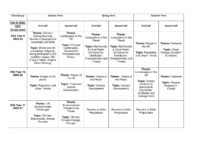Geography
Curriculum Intent
The intent of the Geography curriculum is to inspire curiosity and wonder of the dynamic world we live in and understand our place within it. Students are encouraged to develop an empathy with, and understanding of, people and places both in this country and the wider world.
The curriculum is structured to allow students to build on their previous knowledge, applying skills to a range of different topics within the three broad themes of ‘Amazing World’, ‘Our changing World’ and ‘Sustainability’ at KS3. This provides a solid foundation for KS4 qualifications while helping our students to understand and suggest solutions to contemporary human and environmental problems.
Students become informed, critical citizens who are able to analyse and question the wealth of information available to them in the modern world. Fieldwork investigations in KS3 allow students to test their learning in real world contexts while developing the skills and techniques needed to plan their own investigations in KS4.
The study of Geography aims to inspire in students a curiosity and fascination about the world and its people and cultivate an understanding of the physical and human processes which shape our world. Students will gain an awareness of environmental issues and empathy towards other countries and cultures.
Geography Curriculum – Key Stage 3
Students learn about their place in the world, how it is changing and what they can do to take responsibility for the future. Three broad themes: Amazing World, Our changing World and Sustainability run through the topics for each year group. Students study a range of physical and human topics with links to environmental geography. Students develop their sense of place with carefully selected case studies chosen from the regions of Asia, Africa and the Middle East as well as the UK. Skills and knowledge are developed sequentially e.g. looking at how rocks form (year 7) before considering how we use different rocks and ores (year 8). Map, graphical and enquiry skills are embedded in each topic. Fieldwork investigations are sequenced spatially (on site, local and then further afield) as well as increasing the level of independence expected.



